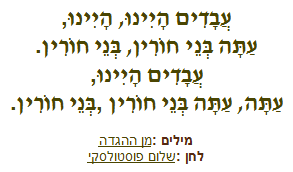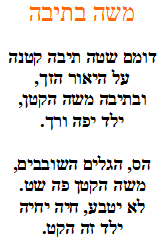|
InteGRATion into
GRATeFULLness
Singing&Sounding keeps me Sound
![]()
I am a wall and my breasts are like towers
| 2007_03_13 |
lyrics:
Bible Song of Songs 8:10.13 + Isaiah 10:30 |
tune: Christa-Rachel Bat-Adam 2004 |
|
|
From:
"Is
this really a God-Victorious Journey", Page III In the last verses of Canticum, "The Song of Songs", I saw and see the lover from Migdal: "I am a wall and my breasts are like "migdalot", like towers, [see the tower in Rennes de Chateau in that Page III] You, who are sitting in the gardens, friends are listening -maqshivim - to your voice! Let me hear! [and an addition from Isaiah 10:30] Sound your voice, daughter of waves! [Only now - on 2012_12_09 - I discerned, that the word after "daughter of waves" is: haqshivi - listen! - a feminine imperative, the counterpart to the listening of the male friends in Canticum? In any case, I'll always add "haqshivi" to my singing. The understanding came on April 17, 2014 in Coping with "Greatness and its Shadow". |
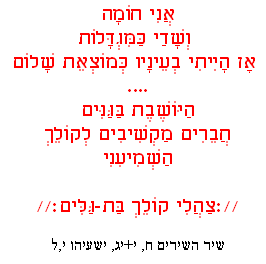 |
![]()
to former song to next song
to next song
2010
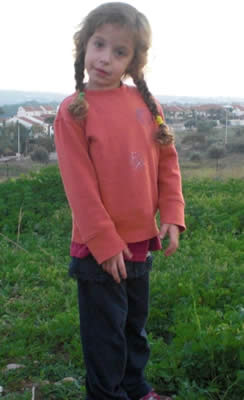 |
2010_03_29
- Mika's Heaven on Earth Since August 1, 2009, I employ song-page after song-page for documenting and exploring the evolution of Mika my youngest grandchild, whose assignment seems to be: to demonstrate to humankind by her own living and doing, how to playfully create from moment to moment "zest-fully and full-filled" [see previous composition] |
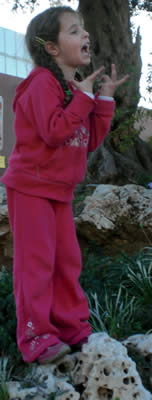 |
"....Manifestation is meant to be
a playground
where being and doing are fun..."
[Godchannel,
Second Interview with the Folks]
Sisters, Elah and Mika, singing "Avadim hainu" - "We were Slaves and now we are Free!"
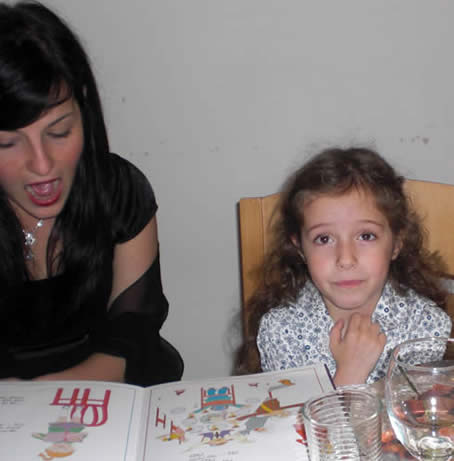 |
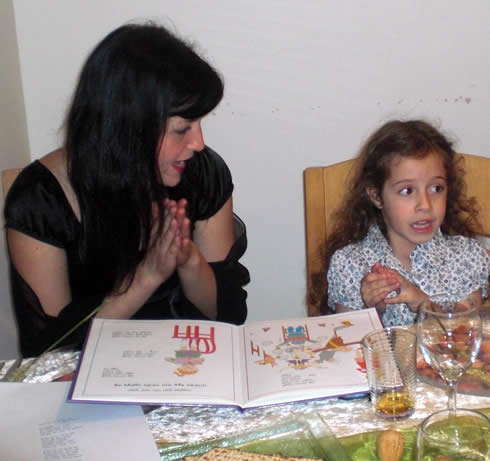 |
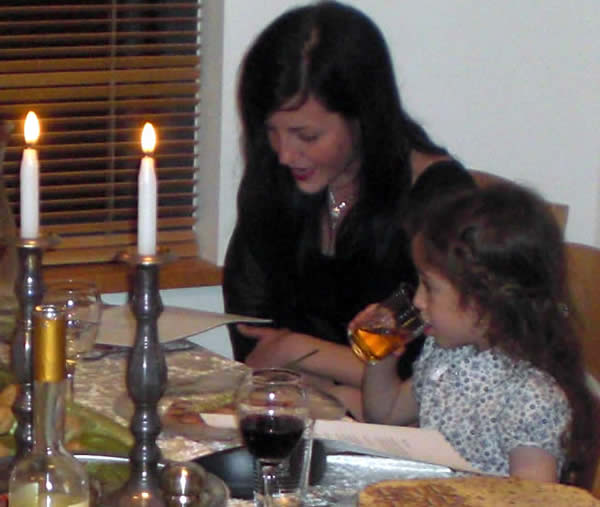
Though it seems that we are reading the "Hagadah" , we are excerpting only some symbols and we sing, most of the time.
Ra'ayah said, she would like to hear - "perhaps from you, Rachel, but not too long!" - the real meaning of the Exodus.
Efrat suggested, that everyone should say, what "freedom" means for him/her, but it was mainly Micha, who responded:
"This early morning I was sitting outside my own tent,
while the "Quartet" were still sleeping in the other one,
and looking from the Judaen Hills across Soreq Valley.
It was then, that I felt totally free."
Thus I learnt about a joyful event:
Ayelet had asked for an overnight outing with the Quartet,
("but with Abba, not with Grandma", as Arnon told me later!)
So the Four drove up the Jerusalem mountains with Micha,
and after a splendid bonfire had a cosy night together in a tent!
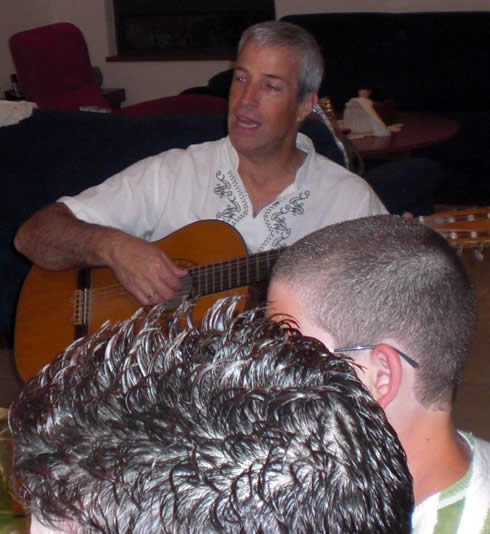 |
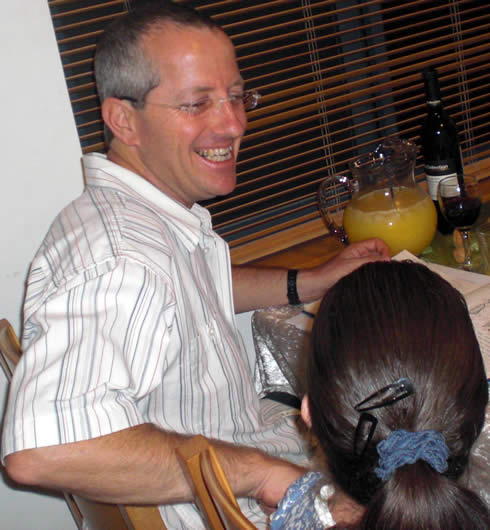 |
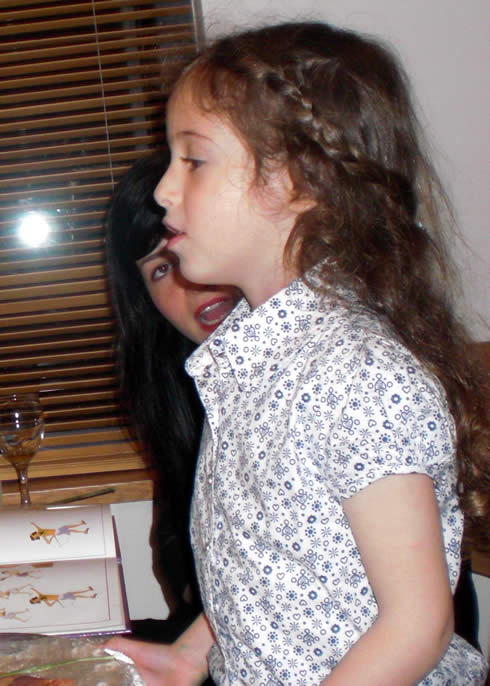
Mika - on the background of her big sister's face -
looks even less her true age (4 1/4) than usual
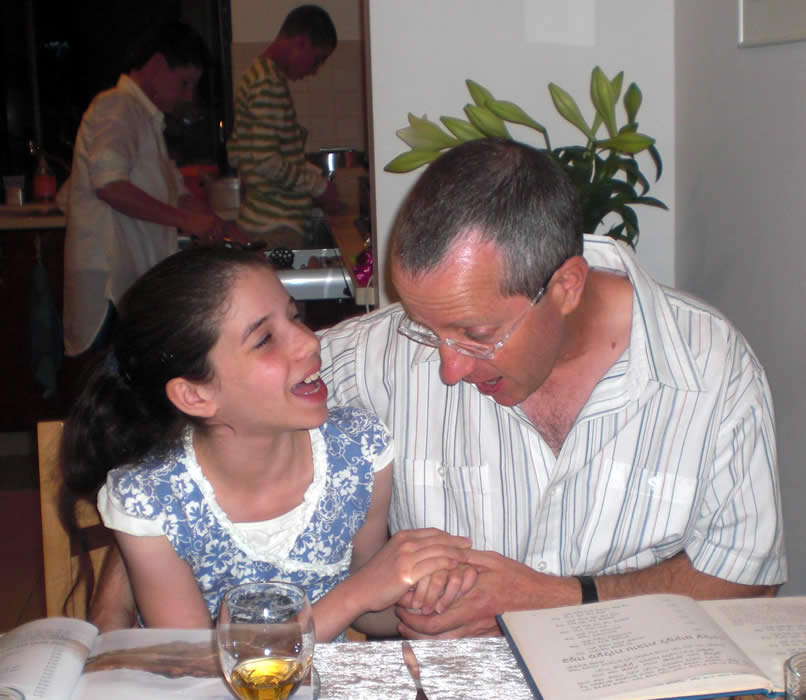
Micha and Ayelet sing , yes perform , how little Moses
floats on the Nile
LITTLE
MOSES IN THE ARK Dumám sháta teivá ktaná Al haieór hazákh, Uvateivá moshé hakatán Iéled iafé varákh. Hass, hagalím hashovavím, Moshé hakatán po shat. Lo yitbá, khaiyó yikhyé yeled ze hakát. |
At a certain stage Mika had enough of sitting around
the table,
eating, singing, reading, performing, talking
and began to "activate" people to play with her.
The first person was her father, whom she asked to throw this ball to her
and receive it back.
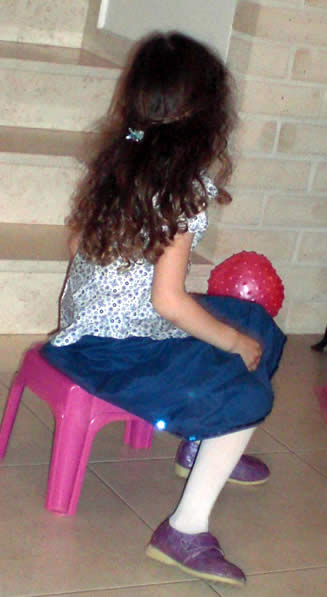 |
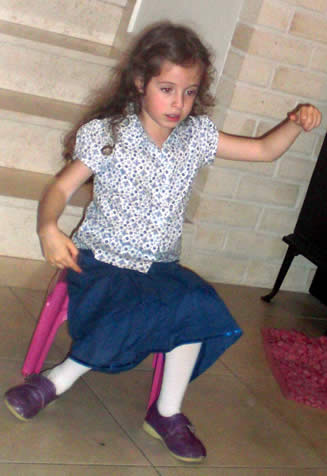 |
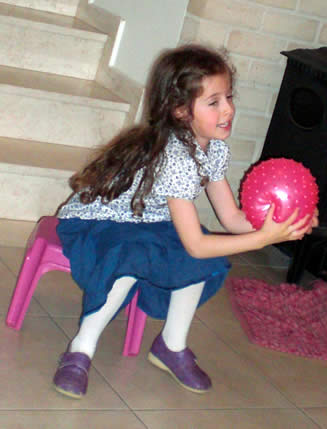 |
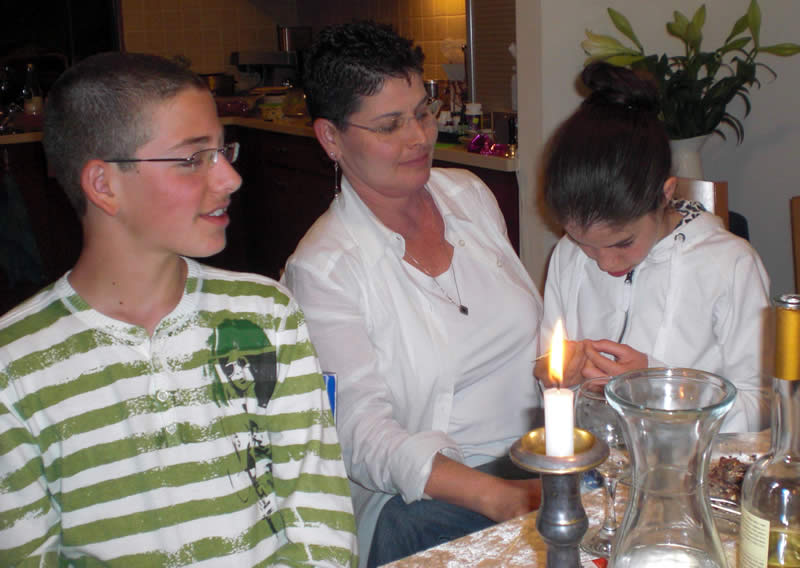
This is a beautiful image of Mother Ra'ayah - she might
, for a change, even like it herself.
It is also somehow - sadly - symbolic for the attention Ayelet receives, while
Arnon is watching with a "denial-face"...
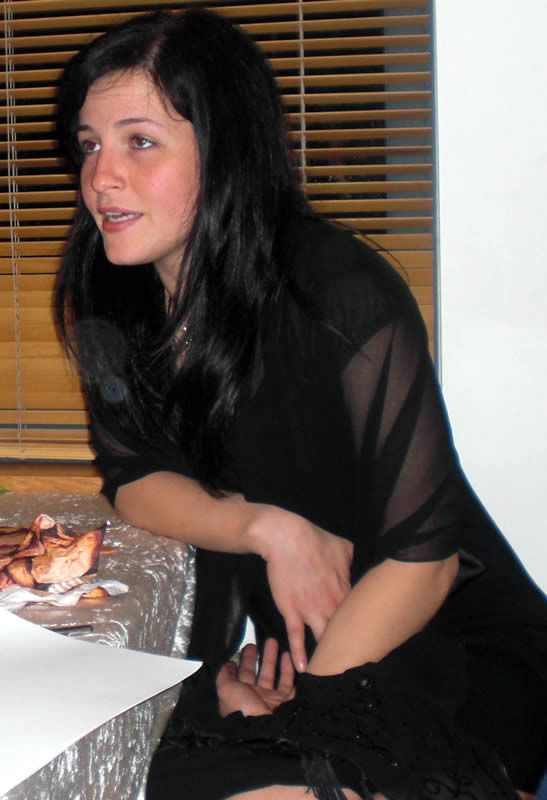
This is the real, lovely (not self-conscious) Elah...
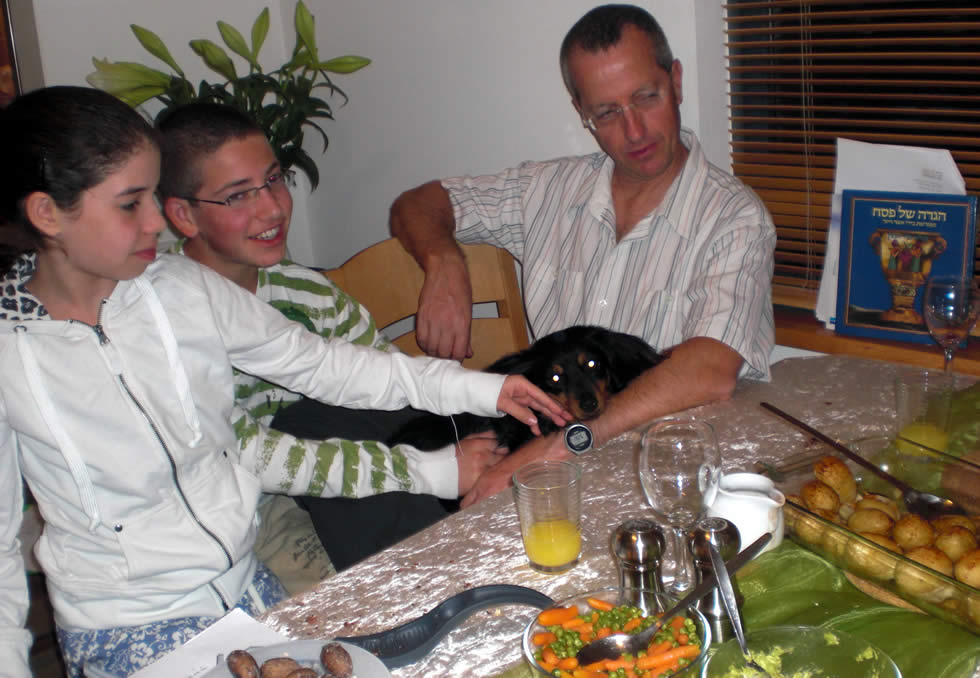
This depicts the ideal relationship between the three
- I want to focus my desire on facial expressions and on the movements of
the hands.
The bith "Qesem" (magic)
probably plays a part in this!
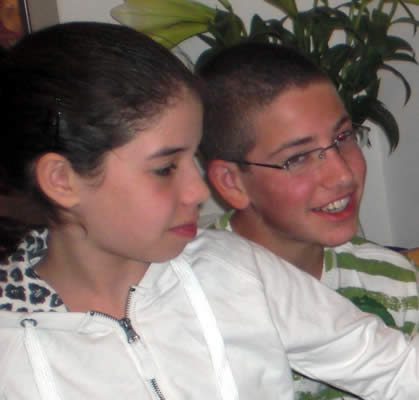 |
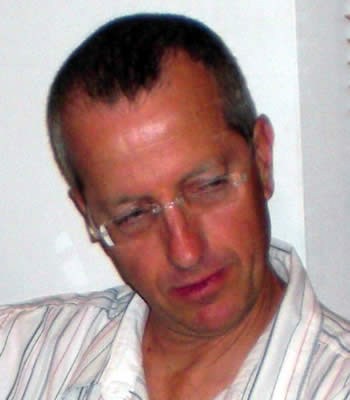 |
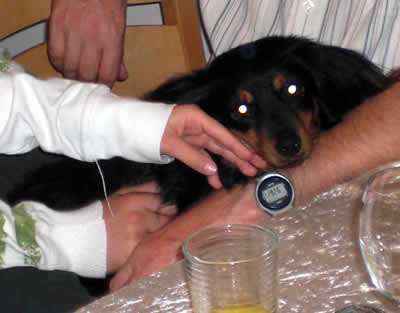
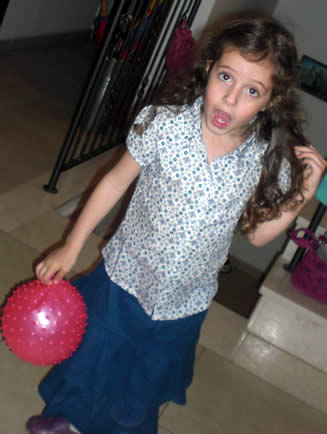 |
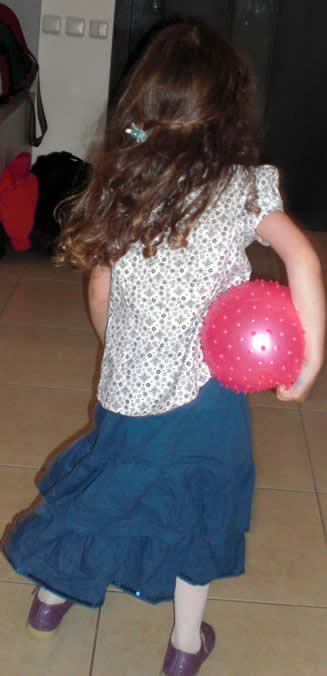 |
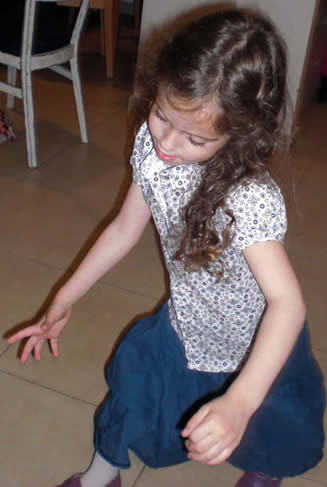 |
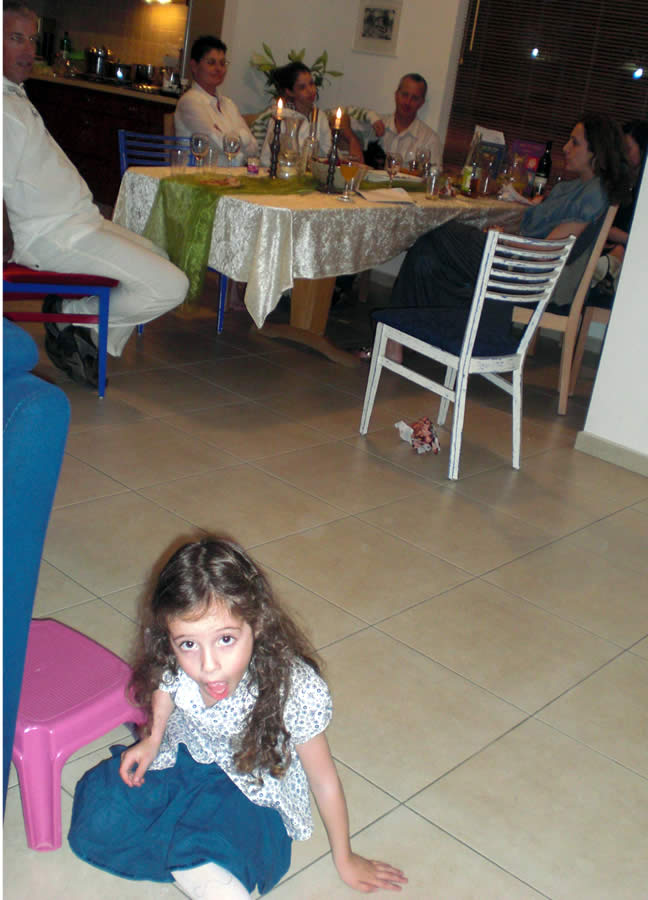
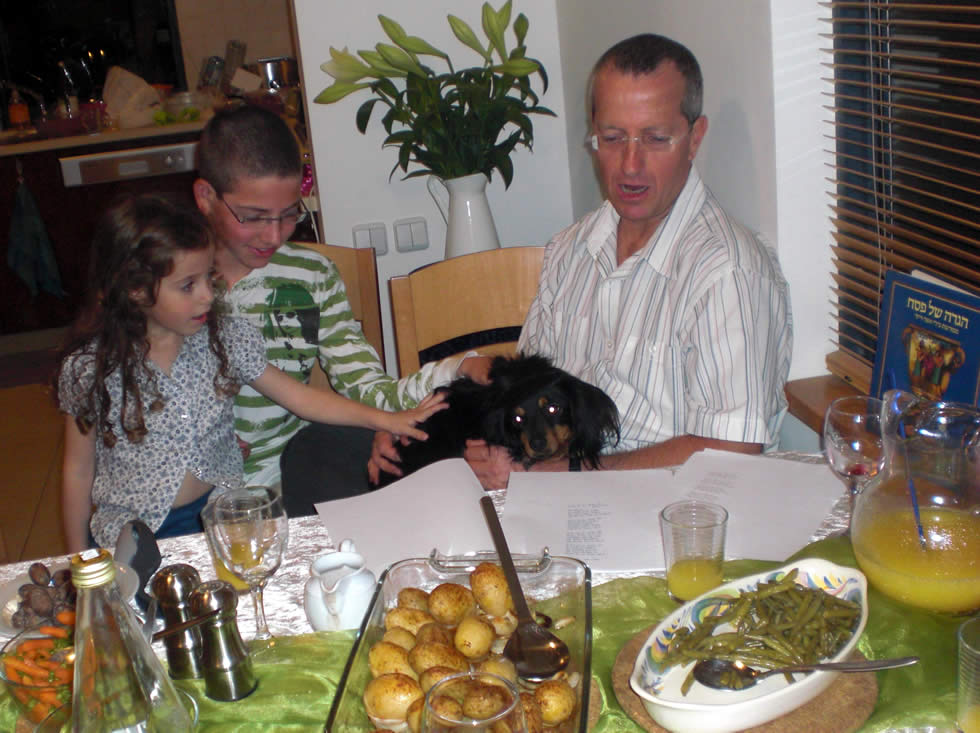
Mika sits on Arnon's lap for a change, while we grownups
keep singing some songs, which Efrat had printed out for this night
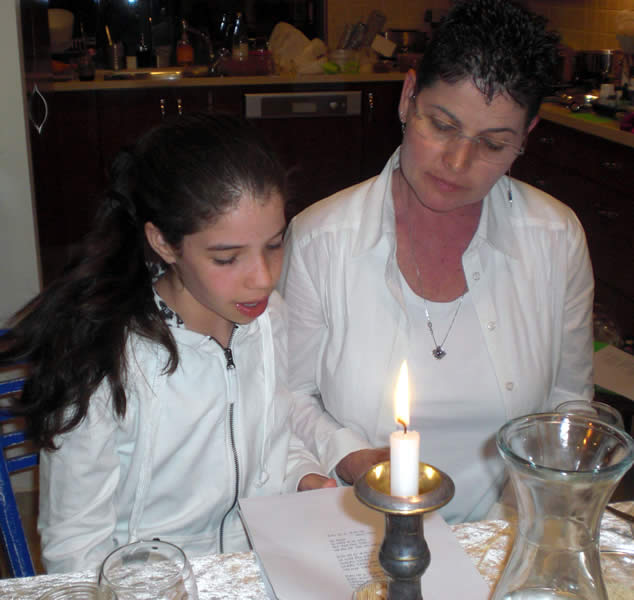
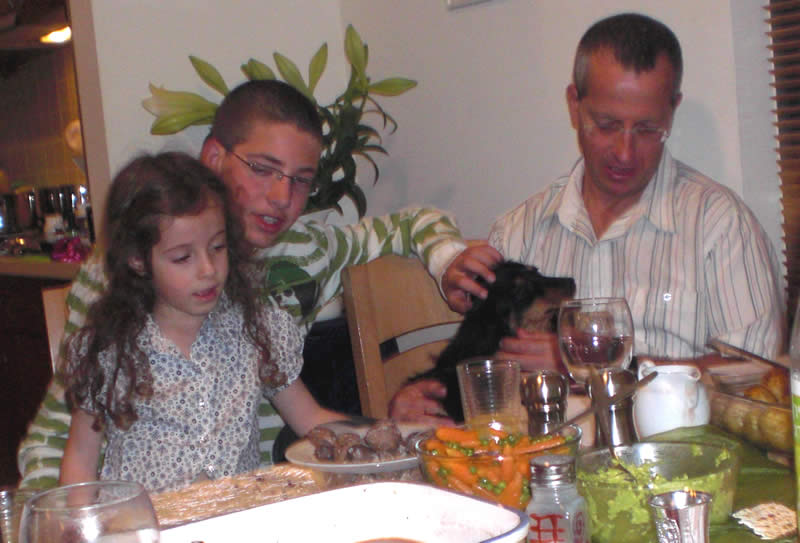
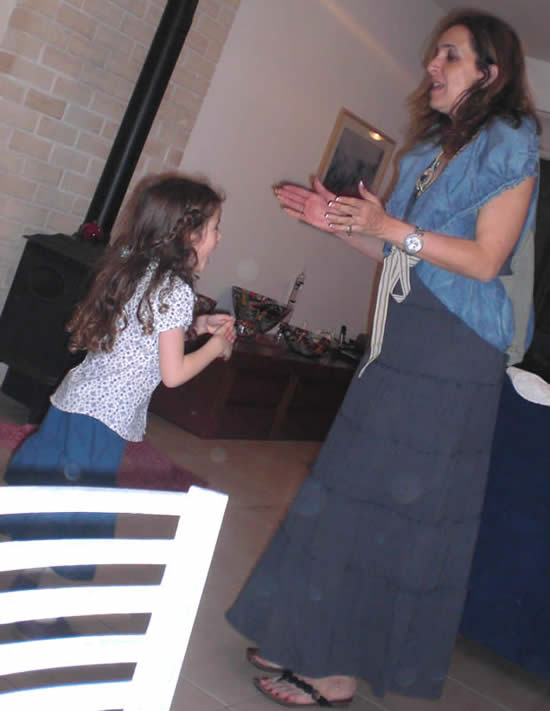
Now it's Imma, who is "activated" by Mika,
- they dance together
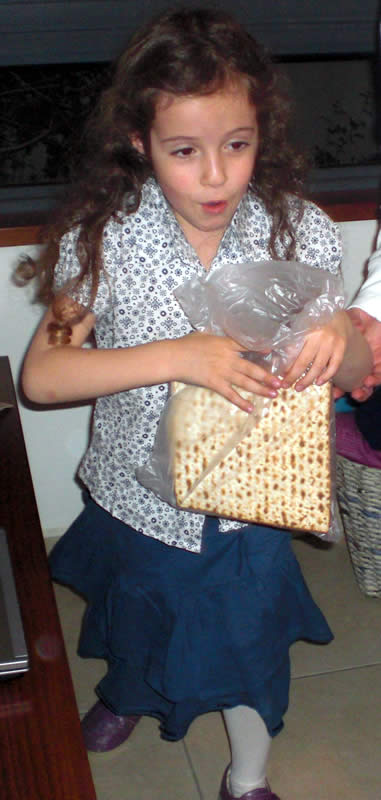 Mika (with Ayelet's help) found the "Afikoman", and is promised a gift by her mother (it should have been only half of the mazza...) |
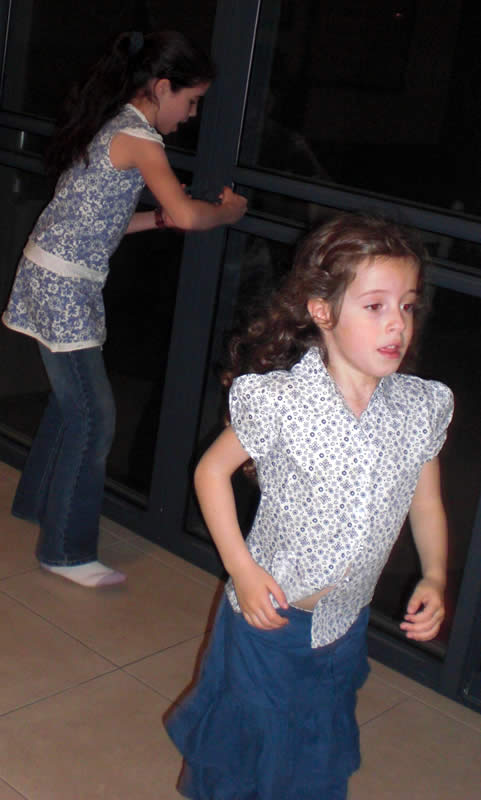 Mika (with Ayelet's help) was looking, if Eliayah, the Prophet, was coming. [Remember Mika's play with Eliyah's cup!] |
Despite my ancient and deep involvment with Eliyah,
see "INTEGRATION",
I never thought about the symbol of the prophet's presence at the Seder.
Only a few days earlier I read by chance that there are assumptions but no
certainty concerning this riddle.
But then Jonathan
Segev - during his visit in Arad, on April 1 - said, as if he had naturally
learnt this from ME:
"Eliayah comes on the Seder Night to check,
if the prophecy about fathers and sons and mothers and daughters is finally
coming true!"
Behold,
I will send you Elijah the prophet before the coming of the great and terrible day of the LORD. And he shall turn the heart of the fathers to the children, and the heart of the children to their fathers; lest I come and smite the land with utter destruction Malachi 3 end (in all translated "Old Testaments" this is its very last verse!) |
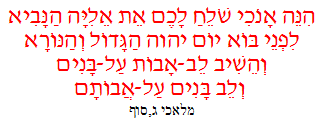 |
|
Continuation of Mika's
"Heaven-on-Earth" , in March 2010, on the
Song page of March 14 , 2007 |
